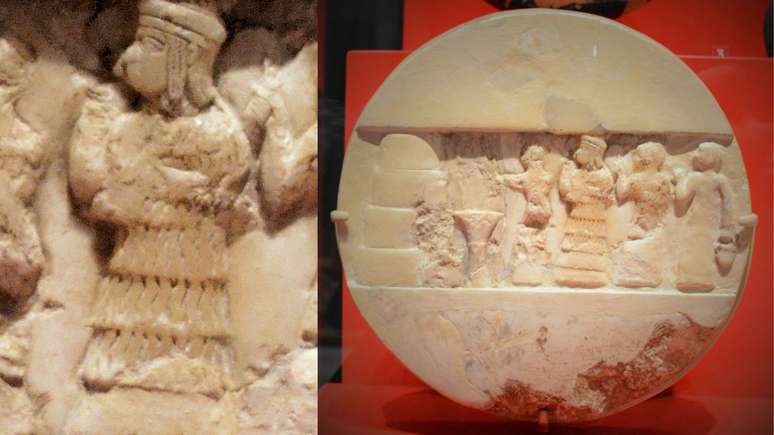Princess, poet and priestess, Enheduanna was the first woman to receive a title reserved for personalities of great political importance
Summary
Enheduanna, princess, poet and priestess of ancient Sumeria, was the first person to sign her literary works, breaking the anonymity of the time.
The title of first writer in history belongs to a woman. Enheduanna, princess, poet and priestess who lived in Mesopotamia around 2300 BC, is recognized as the first person to sign her literary works, breaking the anonymity that characterized the texts of the time.
Daughter of King Sargon of the Akkadian Empire, she received the name meaning “ornament of the sky”, in reference to the Moon. Enheduanna was high priestess of the moon god Nana, in the city of Ur, in ancient Sumeria, and was. also the first woman to receive the title of EN, reserved for personalities of great political importance.

5 feminist authors to read urgently
But despite her role in politics, it was her lyrics that made her go down in history. At the time, much Mesopotamian literature did not name its authors, but Enheduanna signed her name to songs that contained personal accounts and religious devotion. He also wrote about sexual abuse.
In one of her writings, Enheduana tells of the arrival of a usurper who abuses her, chases her out of the house and even gives her a dagger, suggesting that she take her own life. Fortunately, the goddess Inanna, associated with love and eroticism, intervenes and saves her.
In another poem, Enheduanna describes her birth process, initiated by the symbolism of a fire lit in the wedding bed.
A symbol of female resistance
Enheduana is credited as the author of 42 hymns dedicated to temples across a vast territory in Sumer and Akkad, including regions such as Eridu, Sipar, and Esnuna. These works became known as the Sumerian temple hymns.
Furthermore, 37 clay tablets with texts attributed to Enheduana, found in Ur and Nippur, dating mainly to the Paleo-Babylonian period and the Third Dynasty of Ur, have been reconstructed.
The fact that Enheduanna signed her lyrics is considered revolutionary. In a time when anonymity was the norm, she reclaimed her authorship and brought a female perspective to literature. Enheduanna’s work demonstrated that women played a significant role in preserving and creating knowledge at the time.
Furthermore, according to historians, it is believed that, in addition to her, other women, such as wives of kings and priestesses, also produced literary texts, reflecting a society in which women had more power than many subsequent generations.
Source: Terra
Rose James is a Gossipify movie and series reviewer known for her in-depth analysis and unique perspective on the latest releases. With a background in film studies, she provides engaging and informative reviews, and keeps readers up to date with industry trends and emerging talents.




-t86urcblc4s5.jpg)


